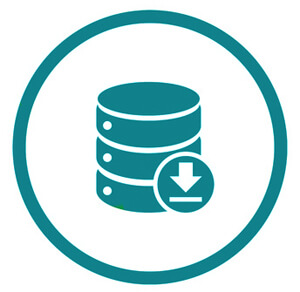WP Engine Review – Are They Worth It?

Last Updated:
As far as WordPress hosts go, WP Engine is one of our absolute favorites, and arguably the best for WordPress websites. While hosts like LiquidWeb, Bluehost, Hostinger and others (including Flywheel) do a great job, WP Engine is really the cream of the crop (although some companies like SiteGround are inching a lot closer for a fraction of the price).
A quick note before we get started: this page contains affiliate links. That means if you purchase hosting (such as WP Engine) from the links on this page, we might get a commission payment. These payments help to keep the site running and the content ad free. We absolutely hate websites that push garbage hosts just to make commissions and there are plenty of hosts that we don’t like or recommend regardless of what they pay out in commissions. WebHostingBuddy is not a site that’s influenced by any of that nonsense—you’ll only find real, honest reviews here.
The WP Engine Difference—Are They Really Better for WordPress?
The core question at hand is this—is WP Engine really better? Are they “worth it?” In our opinion, if you’ve got a WordPress website, they definitely are better than most hosting companies. But why? Well, let’s take a look at some of the advantages they have over both traditional hosting and other managed hosts.
Increased Security
Everyone knows that WordPress is incredibly vulnerable compared to a static HTML site. Because it runs on PHP and connects to a database, there are vulnerabilities on multiple fronts. While traditional shared hosting isn’t insecure per se, it’s definitely not the most secure option out there for WordPress. WP Engine employs a few different strategies to prevent some of the most common WordPress attacks. Some of these strategies include:
Disallowing Certain WordPress plugins

It’s extremely common for plugins to create massive security loopholes in WordPress, and WP Engine blocks or disallows certain plugins known to have problems. This means that if you try to install a vulnerable plugin in your WordPress installation, their servers won’t let you.
Version Monitoring and Updating
WP Engine continually monitors both the plugin versions and the core WordPress version to ensure that your installation is up-to-date with the latest security patches. Typically they’ll notify you of that the versions are out-of-date but if you don’t upgrade them yourself within a specific time period, they’ll perform the upgrade for you. Sometimes this can be a little annoying if the upgrade breaks something else on your site, but in the end it’s better than having some big holes in your security. They do, however, allow you to defer the upgrade a bit in some cases.
Disk Write Privileges
While disk write privileges can be set on a Linux server relatively easily, it’s not uncommon for them to get overlooked, or be above the technical capacity of someone new to web hosting. The nice thing about WP Engine is that they take care of this for you, preventing bad actors from gaining access to your server and compromising your website.
System Scans
WP Engine scans for malware and compromised files on a regular basis, which is really nice because they’ll alert you when there’s a problem. There are other add-on services you can get (such as SiteLock, which sucks) with shared hosting that can perform a similar function, but WP Engine’s scanning is much better in our opinion.
Easy Backups, Migrations & Restoring

One of the best things about WP Engine is that they make backups, transfers, and restoring so easy. They have an automated backup system (many hosts do) but restoring from a certain point only requires a few clicks instead of opening a ticket and going through all kinds of work. While some hosts have gotten better at automated backups (like SiteGround), some still have really weird and cumbersome system, like Liquidweb’s Acronis backups (which are almost impossible understand or change settings).
In addition to backups, WP Engine makes a plugin that helps you easily migrate a WordPress site from a different host. All you do is install their plugin, click a few buttons, enter some credentials, and the plugin takes care of the rest. It even sets up the site on WP Engine’s servers for you so you don’t have to deal with importing a database and other things. It’s extremely slick and really takes the pain out of migrating a WordPress site. That said, other hosing companies will help with migrations if you’re a new customer though.
When it comes to restoring a site, it’s just as easy as to restore as it is to back up. While there are a lot of managed WordPress hosts that make backups and restoring relatively easy, we think WP Engine does the best job at it.
Staging Environment
One really nice feature that WP Engine offers is their staging environment, which is really a nice way to make changes to the site or try new things. The staging environment is a clone of the production site that is a place where you can test plugins, themes, custom code and more. Switching between the live environment and the staging environment is also really easy as well. Again, SiteGround does a decent job with this, especially for the price, but none are as slick as WP Engine.
Speed and Performance
Because WP Engine is built from the ground up for WordPress, it goes without saying that it’s very fast when it comes to serving up a WordPress site. If you’ve had a chance to visit the Fastest Web Hosting page on this site, you’d see that WP Engine was the overall winner in terms of speed and performance (which was a well-deserved win). There are a variety of features that WP engine has which help speed up sites on their servers.
Lighthouse Performance Dashboard
One thing that’s unique to WP Engine (at least at the time of writing) is their Lighthouse page performance dashboard. You see this when you login to the user dashboard for the main system. You can then see each individual site, look at recommendations, and even view the full test which includes a step-by-step screen shot tool where you can see each step of the loading process. It’s very slick and something that you can use to help keep your page load times low. This used to be a proprietary tool, but they’ve now rolled out Lighthouse analytics, and it’s even better.

This tool shows how long the rendering took, how many page requests there were, and also the page load times with/without caching. Where there are external website speed tests available, this one is very helpful because it’s integrated into the interface, instead of you having to go to another site and run a Lighthouse test to get this data.
Top-Notch Caching
While there are a variety of WordPress caching plugins available (such as WP Super Cache), none of them work as well as when your host has properly-configured, built-in caching—and when it comes to WordPress caching, WP Engine is arguably the best at it. SiteGround’s SuperCacher is pretty close for the money (which is a lot less than WP Engine), although it’s still not quite as good (but is less expensive).
We’ve had some record load times on WP Engine, some of them being under 1 second for a very simple WordPress site or the default theme page.
Built-in CDN
If you’re reading this WP Engine review, you most likely know what a CDN is. If you don’t a CDN (Content Delivery Network) is a web-based service that helps static elements and content on your site load faster.
WP Engine has an integrated CDN that users can easily turn on or turn off inside the user area. This helps (in addition to caching) to speed up the site and make things load more quickly.
Created From the Ground-up for WordPress
Compared to standard shared Linux hosting, WP Engine was created from the ground up for one purpose—hosting WordPress sites. This is something that makes them one of the fastest hosting platforms for WordPress because everything has been optimized from the beginning for speed.
Reviewing WP Engine—The User Interface
When you first login to WP Engine, you’ll see a basic dashboard that lists all of your sites (WP Engine calls these “installs”). You can choose from any of these sites to get a deeper look at the stats for that site and access more of the configuration settings.
On this second-level menu, you’ll have access to visitor statistics, WordPress version information, redirect rules, CDN configuration settings, and links to the WordPress login, phpMyAdmin, and other things that you might be accustomed to working with if you’re a WordPress developer or site owner.
WP Engine has really improved their interface over time; it’s a lot better than it was a couple years ago, and it’s quite easy to see a snapshot of everything that you need to know.
Customer Service & Support—One of the Best Things About WP Engine

As we’ve said in many reviews, we firmly believe that a host should offer multiple ways of getting help—telephone, chat, email, ticket support. WP Engine offers all of these things and that’s another thing that makes them great. On top of that, when you do need help, you aren’t dealing with a random tech who doesn’t understand WordPress and mainly works on database or network administration—you’re dealing with a WordPress expert each time you need help.
For the most part, problems that we’ve had have been able to be solved over chat, although there have been some problems that needed to be escalated to a ticket in order to be solved by a higher level tech (such as an SSL certificate that wouldn’t seem to propagate).
There have been a few times that we’ve had to call in and talk to WP Engine’s support over the phone, and it’s been great. Typically, we opt for chat or ticket support, but in a situation where there’s a site migration where downtime isn’t an option or there’s some other urgent need, we’ve gone ahead and called in and received great support.
Overall, WP Engine’s support is fast, helpful, and it’s very easy to get a hold of a person to talk to who understands WordPress and understands the problems at hand. We will say that their first line chat support used to be a little better, but it’s not bad (and certainly better than a lot of other hosting companies). It’s pretty common that none of this first line support for any hosting company is as good as it used to be a few years ago (although SiteGround might be an exception here).
Areas Where WP Engine Can Improve
As with any web host, no matter how good they are, there’s always room for improvement. While we really like WP Engine, here are a few things that we think that can improve upon.
DDoS protection
We’ve had a few sites that were down for longer than we would have liked on WP Engine due to a DDoS (denial of service) attack on their servers. This is something that has happened more than once and they have said they are working on ways to prevent this in the future. We’re not sure why their servers were targeted, but it was inconvenient.
SSL Propagation Time

We’ve experienced what we would consider to be unacceptable wait times when an SSL certificate is propagating and getting configured in their interface. At one point this lasted a couple days—again, not the end of the world, but it was annoying. They did say that this was due to a glitch and shouldn’t normally happen. We have had SSL certificates propagate just fine with WP Engine, so it’s definitely not something that happens all the time. However, in the past year now that the free Let’s Encrypt SSL certificates are standard, this appears to have improved.
Migration Misconfigurations
We’ve noticed a few times that their plugin for migrating sites (while awesome and incredibly slick) has occasionally not migrated all of the URLs properly, especially with it comes to HTTPS. Again, this is minor, but it’s worth mentioning and as far as we understand, this is also something they’re working to improve.
Goofy Visit Counting
Most managed hosting companies count “visits” in terms your plan allotment, meaning that on a certain tier, your website can have so many visits per month. For example, at the time of writing, WP Engine allows 25,000 visits per month on their cheapest plan. This is supposed to represent a unique human visitor to your site, but unfortunately they still count a lot of bot visits that get through CDNs like Cloudflare or hit the server in some other way. This is extremely annoying because it runs up the bill for some websites, in some cases, and is an odd pricing structure/model. We wrote a blog post about that here, and years later, it still seems to be an issue in some cases with them.
WP Engine Pricing Structure & Options
By now, it should be clear that WP Engine is an excellent host for WordPress. However, because they’re a fully-managed WordPress host, they are a bit more expensive than a cheapo Linux shared plan. Are you getting tons more for the money? Yes! Are they worth every penny in our opinion? Absolutely! That said, there are always budgetary considerations, and therefore it’s important to look at pricing to understand the options. The table below summarizes their plan options.
| Startup | Growth | Scale |
|---|---|---|
| 1 site | 10 sites | 30 sites |
| 25K visits/month | 100K visits/month | 400K visits/month |
| 10 GB storage | 20 GB storage | 50 GB storage |
| 50 GB bandwidth | 200GB bandwidth | 500 GB bandwidth |
| $30/month (possible discounts for annual payment/coupons) | $140/month (possible discounts for annual payment/coupons) | $350/month (possible discounts for annual payments/coupons) |
For most people with a reasonably-trafficked blog or website, the $30/month plan is enough, and there’s always room to upgrade. There are also some discounts available like those with our WP Engine coupon as well as annual payment options that allow for prices as cheap as $20/month at the time of writing in some cases.
WP Engine also offers “isolated environments” (their speak for dedicated instances, because technically all their other hosting is on shared servers) but these come at a massive premium. Like $1000+ per month, with even average power instances being $1500/month or more. Generally speaking these aren’t worth it unless you have a massive budget (like a bigger company or business) or you aren’t technical enough to run your own server or VPS. In these cases, a company like Liquidweb would be a much better value for the money.
Additionally, WP Engine offers headless WordPress hosting on their Atlas platform, but this is also very expensive vs. a Digital Ocean box where you can run your own, and sites might need to be developed specifically for WP Engine Atlas (although this might not always be the case, it’s just that they do a lot of proprietary things and code might need to be compatible).
Is WP Engine Recommended? Are They Worth It?
Absolutely! If you’re hosting a WordPress site, they represent one of the best options in terms of the value for the money, and also the speed, performance, security, and reliability that you’ll get with WP Engine. There are higher-end WordPress hosts, but they cost a fortune and are really meant for big, corporate sites or sites that get millions of visitors in our opinion. If you fall somewhere short of that (or even in that area since they have enterprise plans), WP Engine is one of the best options available.

